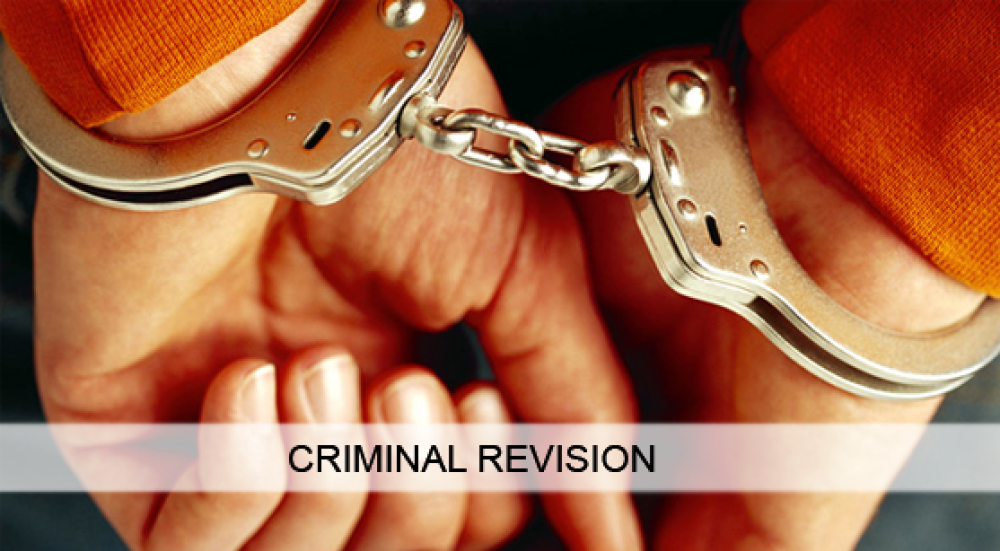A "Criminal Revision" is a legal process through which a higher court reviews and examines the correctness, legality, or propriety of a decision or order passed by a lower court in a criminal case. It provides a mechanism for parties dissatisfied with the decisions of lower courts to seek a review and possible correction of those decisions. Here's an overview of what a criminal revision entails:
Purpose of Criminal Revision:
Review of Lower Court Decisions
- The primary purpose of a criminal revision is to allow a higher court to review and correct errors, irregularities, or injustices in the judgments or orders of subordinate criminal courts.
- It provides a mechanism for parties to challenge decisions they believe to be incorrect, illegal, or unfair.
Ensuring Fairness and Justice
- Criminal revision aims to ensure that the accused and other parties involved in the case receive fair treatment and that legal procedures are followed correctly.
- It provides an avenue for addressing any miscarriage of justice that may have occurred in the lower court's decision.
Grounds for Filing Criminal Revision:
Error of Law
- A party may file a criminal revision if they believe that the lower court made an error in interpreting or applying the law.
- This includes misinterpretation of legal provisions, incorrect application of legal principles, or failure to consider relevant laws.
Error of Fact
- If there is a clear error in the lower court's findings of fact, a criminal revision may be filed.
- This includes situations where the lower court has ignored or misinterpreted evidence, leading to an incorrect factual conclusion.
Violation of Procedure
- Criminal revision can be sought if there has been a procedural irregularity in the lower court proceedings.
- This may include failure to follow prescribed legal procedures, denial of natural justice, or violation of principles of fair trial.
Excess of Jurisdiction
- If the lower court has acted beyond its legal authority or jurisdiction, a criminal revision can be filed to challenge such actions.
New Evidence or Material
- In some cases, a criminal revision may be filed based on newly discovered evidence or material that was not available during the lower court proceedings.
Procedure for Filing Criminal Revision:
Time Limit
- Criminal revision petitions must generally be filed within a specified time limit, which varies depending on the jurisdiction and the nature of the case.
- It is important to adhere to the prescribed time limit, as delays may lead to the petition being dismissed.
Drafting the Petition
- The party seeking criminal revision must prepare a petition outlining the grounds on which the revision is sought.
- The petition should clearly state the facts of the case, the errors in the lower court judgment, and the relief sought.
Filing in the Appropriate Court
- The criminal revision petition is filed in the appropriate higher court, which may be a District Court, Sessions Court, High Court, or any other designated court depending on the jurisdictional hierarchy.
Notice to Opposing Party
- The opposing party is served with a copy of the criminal revision petition, and they have the opportunity to respond to the allegations and arguments raised.
Arguments and Hearing
- The court will schedule a hearing where both parties present their arguments.
- The court may ask for clarifications, examine the evidence, and hear legal submissions from both sides.
Decision
- After considering the arguments and evidence, the court will make a decision on the criminal revision petition.
- The court may uphold the lower court's decision, modify it, set it aside, or order a re-trial of the case.
Outcome of Criminal Revision:
Allowance of Revision
- If the court finds merit in the criminal revision petition, it may allow the revision and make corrections to the lower court's judgment or order.
- The court may set aside the lower court's decision and order a new trial, or it may modify the judgment as appropriate.
Dismissal of Revision
- If the court does not find sufficient grounds for the criminal revision, it may dismiss the petition, upholding the lower court's decision.
- The original judgment or order of the lower court remains in force.
Grant of Relief
- Depending on the nature of the case and the relief sought, the court may order specific remedies such as setting aside a conviction, reducing a sentence, directing a retrial, or any other appropriate relief.
Importance of Legal Representation:
Filing a criminal revision petition involves complex legal procedures and arguments. It is crucial to seek the assistance of an experienced criminal defense lawyer who can guide you through the process, prepare a strong petition, present arguments effectively in court, and protect your interests.
In conclusion, a criminal revision provides an important avenue for parties dissatisfied with the decisions of lower courts in criminal cases to seek a review and possible correction of those decisions. It helps ensure fairness, justice, and the proper application of law in the legal system. If you believe that a lower court has made a mistake in its decision, a criminal revision petition may be the appropriate course of action to seek redress.
